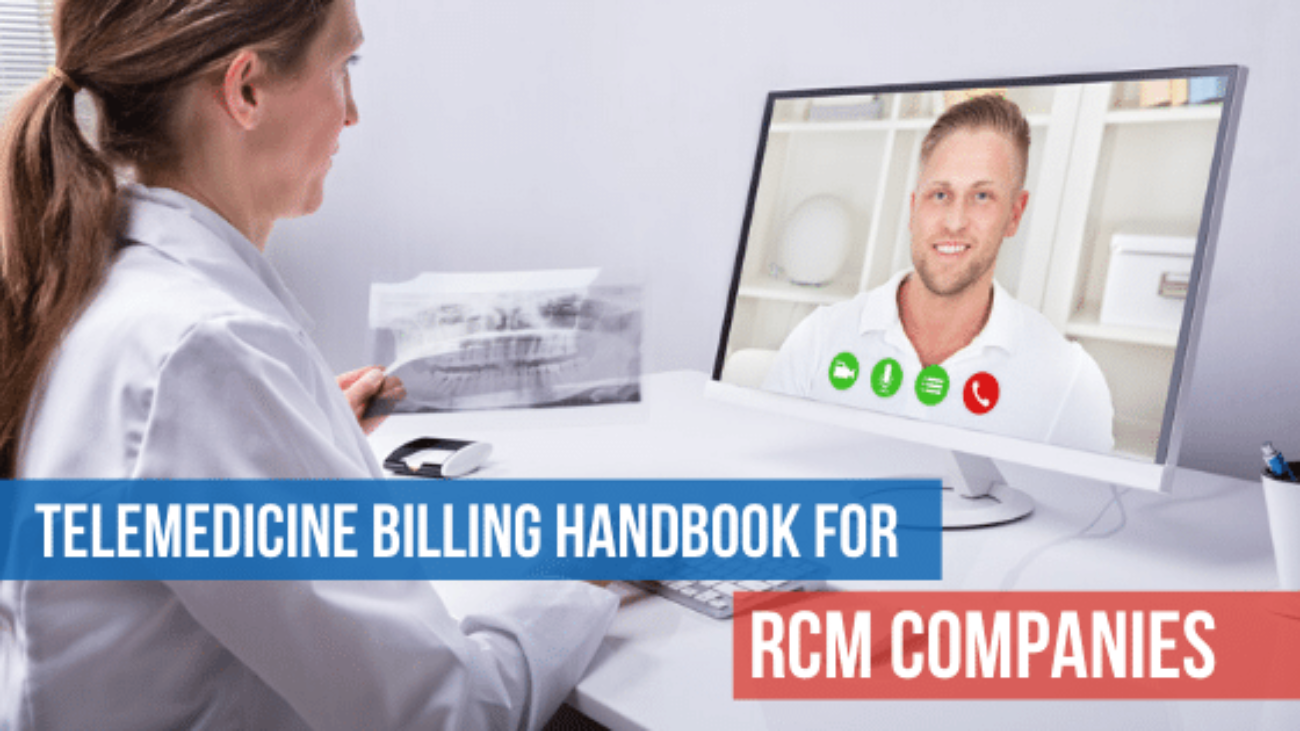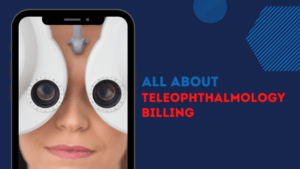Telemedicine has been the saviour during Covid-19. But the question from most of the healthcare professionals is how do revenue cycle management companies perform the billing?
Telemedicine billing can be often tricky and is almost changing due to Covid-19 that is really difficult to keep an eye on.
In fact the guidelines for the telemedicine billing are still in process. Not only change in the rules but also they vary between insurance companies.
However it’s clearly seen that guidelines will be soon issued to all the insurance companies around the world but revenue cycle management companies require answered for many medical billing and coding questions as well.
Clear and definite answers required for, what are the codes to be used and how to bill telemedicine? How are the revenue payments cleared or posted? Is there any regulations involved?
Answers for these questions must be obtained for greater and smoother reimbursements without any revenue loss.
Major Steps to Focus While Billing Telemedicine:
- Ensure Insurance Coverage
- Updates on telemedicine rules
- Insurance Verification in advance
- Know guidelines for each payer
- Check CPT codes
- How to use GT and 95 Modifiers
- Service Codes
-
Ensure Insurance Coverage:
- Revenue cycle management companies must ensure to check around if all insurance companies cover telemedicine.
- It’s evident that most of the payers are ready to cover telemedicine services including medicine with current Covid-19 crisis.
- Obviously, the rules for telemedicine have rapidly expanded and changes are followed along. Rules those were not accepted earlier are being accepted at present.
-
Updated Telemedicine Rules:
- Telemedicine policies are being changed and updated almost every day.
- Insurance companies and Medicare has updated the changing policies according to the telemedicine strategy.
- It becomes more accessible and easy for the revenue cycle management companies if codes or policies are frequently updated as they would carry lesser burden on their shoulders.
-
Insurance Verification:
- Always call the payer and verify the patient’s insurance before their first telemedicine visit to ensure better reimbursements without any delay.
- It will consume time and effort but it’s recommended to follow the process once for that particular policy.
- Make sure to have a telemedicine insurance verification report with the representative answers.
- Revenue cycle management companies must always keep the data stored as documents to fight for the denied claims later on.
- If the payer or insurance companies confirms regarding telemedicine coverage, then have their reference number to call as evidence.
-
Know the Guidelines for Each Payer:
- Tackling telemedicine billing can be tricky and seem difficult initially if the revenue cycle management companies do the billing for Medicare, Medicaid as well as private insurance payers.
- Some questions to ask and be aware of:
- Which specialist can bill for telemedicine?
- What are the healthcare services through telemedicine?
- Do insurance companies specifically cover live video telemedicine?
- Any restrictions or conditions that patient have to meet before qualifying for it?
- Any restrictions on number of telemedicine visits in a year?
- It’s compulsory for some of those insurance companies to generate answers for these questions to define their telemedicine coverage.
- Some might drop few restrictions and cover telemedicine for certain healthcare professionals. However it’s not the same and varies from payer to payer. So, it’s important to call them for guidance.
- Never forget about the fast changing rules and insurance companies representatives may not be aware of all the changes that has been happening day by day.
- Medicare and the other insurance companies must update their technology and start storing the information online or computer system.
- It’s natural and common to come across telemedicine denials on the first attempt.
-
Check CPT codes:
- The common complaint from insurance companies to revenue cycle management companies or healthcare professionals is to use accurate and appropriate CPT codes along with GT or 95 Modifiers.
- Huge long lists of CPT codes are covered by Medicare and some private payers prefer to use specific code 99444. But it varies and differs based on the State and payer.
- Another easiest way to get to know if the codes are eligible is to call the insurance companies directly and ask them without any delay or hesitation.
- If they fail to answer or provide the right information, then revenue cycle management companies has to clarify if 99444 is covered and can use Evaluative and Management CPT codes with a modifier.
-
Proper Use of GT and 95 Modified:
- The main role of GT modifier is to inform Medicare payer that the healthcare professionals had delivered proper telemedicine services.
- Medicare recommends using appropriate GT modifier with proper Evaluative and Management CPT Codes while billing Telemedicine.
- If a bill is handed over to commercial insurance, then it’s mandatory to use regular E & M CPT code along with 95 modifiers by confirming it with the payer.
-
Service Codes for Telemedicine Billing:
- While billing telemedicine services, revenue cycle management companies as well as healthcare professionals must ensure to bill Evaluative and Management codes along with the place of the service code involving GT or 95 modifiers.
- Otherwise the revenue cycle management companies will have to get ready for denials if those telemedicine services are not billed accordingly.
- This follows the same for Medicare as well as any other insurance companies.
How to avoid Denials in Telemedicine Billing:
- Often check for the policy coverage and make sure that particular telemedicine services are covered by the insurance companies.
- Verify the insurance and patient demographic details. There should be no errors while filing a telemedicine claim as it would lead to denials.
- Document the call with the insurance companies so that it would help to fight the denials in the later days.
- Accurate coding is very important to avoid liability and denials. Most of the insurance companies check for proper and accurate coding along with the GT or 95 modifiers.
- Always stay informed and updated regarding coding and the changes in the policies and guidelines as telemedicine regulations change on a daily basis.
How Telemedicine transforms Healthcare Industry:
- Most of the patients interact with healthcare professionals using telemedicine or telehealth.
- It’s essential for the medical coding team to understand telemedicine and telehealth policies.
- Telemedicine offers benefits that include:
- Decrease in healthcare costs
- Access to more providers especially remote
- Improved quality and care
- Quick and convenient medical treatment that reduces work time and travel.
- As CMS has eliminated the use of CPT consultation codes for telemedicine services, it doesn’t recognize the outpatient consultation codes 99241-99245.
- The current codes of Medicare telemedicine services:
- Inpatient initial telemedicine consultation (G0425-G0427)
- Out patient visits are CPT codes (99201-99215)
- Individual Psychotherapy (90804-90809)
- Pharmacologic management (90682)
- Psychiatric diagnostic interview examination ( CPT code 90801)
- Final stage renal disease including monthly capitation (90951, 90952,90954, 90955, 90957, 90958, 90960 ans 90961)
- Individual health and behavior assessment and intervention services (96150-96152)
- Neurobehavioral status examination (CPT code 96116)
- Follow up inpatient consultation (HCPCS codes G0406, G0407 and G0408)
- Individual medical nutrition (HCPCS code G0270 and CPT codes 97802-97803).
Hope you got the information about Telemedicine Billing. For any suggestions, please comment below. We will surely consider them. For more queries and updates on healthcare, please subscribe our blog.




